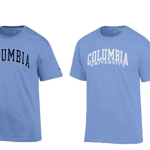Wal-Mart Stores, Inc. reported net sales for the five-week and nine-week periods ending April 3, 2009, and April 4, 2008, as follows (dollars in billions).
Net Sales Net Sales
5 Weeks Ended Percent 9 Weeks Ended Percent
4/3/2009 4/4/2008 Change 4/3/2009 4/4/2008 Change
Walmart U.S. $23.750 $23.155 2.6% $43.821 $41.715 5.0%
International 8.074 9.472 -14.8% 14.549 16.734 -13.1%
Sam's Club 4.382 4.287 2.2% 7.854 7.654 2.6%Total Company $36.206 $36.914 -1.9% $66.224 $66.103 0.2%
On a constant currency basis (assuming exchange rates remained the same as the prior year), International sales increased 7.8% in the March period. With a 22.6% impact from currency exchange rates, reported sales decreased 14.8% in the International segment.
Comparable store sales for the five-week and nine-week periods ending April 3, 2009, and April 4, 2008, appear below.
“>Walmart U.S. 0.6% 0.8% 0.6% 0.8% 0.0% 0.0%
Sam's Club 6.2% -0.5% 1.3% 2.3% -4.9% 2.8%
Total U.S. 1.4% 0.6% 0.7% 1.1% -0.7% 0.5%
Nine Weeks Comparable Store Sales
Without Fuel With Fuel Fuel Impact
4/3/2009 4/4/2008 4/3/2009 4/4/2008 4/3/2009 4/4/2008
Total U.S. 3.1% 1.5% 2.4% 1.9% -0.7% 0.4%
Guidance for Earnings and Sales
“The combined 3.1% comp for Walmart U.S. and Sam's Club we reported for the past nine weeks shows the strength of our underlying operations,” said Tom Schoewe, executive vice president and chief financial officer. “We expect total U.S. comps for the 13 weeks through May 1 to be around the high end of our previously forecasted range of one to three percent.
“Wal-Mart is maintaining strong price leadership and expense management,” said Schoewe. “We believe earnings per share from continuing operations for the first quarter will be toward the high end of the range we provided in February, $0.72 to $0.77 per share.”
Walmart U.S.
Walmart U.S. comparable store sales increased 0.6% during the five-week March period, reflecting the negative impact of the Easter calendar shift versus last year. The April four-week period is expected to benefit from the Easter shift.
“Based on the initial strength of our sales this week, we expect Easter to drive April sales performance,” said Eduardo Castro-Wright, vice chairman, Wal-Mart Stores, Inc. “Clarity of offering, quality brands, unbeatable prices and strong operational execution are driving growth in multiple categories.”
Comparable store traffic increased for a sixth consecutive period. Average ticket was lower, mostly due to the Easter shift and, to a lesser degree, inflation at a lower rate than last year in grocery. Health and wellness, home, and grocery led comparable store sales growth for the March period. Home and “do-it-yourself” categories had mid-single digit comparable store sales gains during the March period.
“We remain well positioned for today's economy,” Castro-Wright said. “People are choosing to spend money in key discretionary categories across the store, and this is translating to improvements in several areas of our business, including home.”
Sam's Club
Sam's Club's strong sales during the March five-week period benefited from robust member demand for Sam's value on food and consumables. The Easter shift favorably impacted comparable sales, as the clubs gained an extra selling day in March. Sam's will be closed for Easter Sunday in April, losing one selling day compared to last year. Unusually strong tobacco sales related to producer price increases, implemented in advance of the April 1 federal excise tax increase, contributed approximately 200 basis points to the comparable club sales increase this period.
The period's underlying strength was driven by sales of fresh food, dry grocery and consumables. Produce, bread and pastry, meat and pet supplies were strong. In general merchandise, office electronics and gardening items were highlights. More discretionary categories, such as jewelry, mattresses and furniture continue to be soft.
Traffic was higher for both Business and Advantage members, with Business ticket up for the period. Lower fuel sales, when compared to the prior year, negatively impacted comparable club sales by 4.9 percentage points.
Wal-Mart International
“In a challenging environment, I'm particularly pleased with ASDA as they continue to gain share in the U.K. market,” said Doug McMillon, president and chief executive officer of Wal-Mart International. “I also appreciate the focus of our associates on productivity, and offering and communicating value.”
Sales from each country are covered on a constant currency basis, excluding any impact from changes in exchange rates. Those countries with significant Easter sales were negatively impacted due to the calendar shift.
ASDA had strong comparable store sales and continued to gain market share. Strong food sales were led by the core grocery and fresh meat categories. General merchandise sales grew fastest in pet care and garden, while ladieswear exceeded expectations before Mother's Day on March 22. A reduction in disposable income and a weaker labor market pressured consumers during the period.
Comparable store sales at Wal-Mart de Mexico increased 1.1%, led by strong performances at Superama and Sam's Club. Growth in customer traffic was strongest at Superama and the Supercenters.
At Wal-Mart Canada, total net sales were higher, but comparable store sales were negative. Food and consumables were stronger. However, sales of discretionary categories, such as apparel, were lower, due to the Easter flip and weaker consumer spending.
In Brazil, real comparable store sales were negative, impacted by lower traffic from the Easter calendar shift. Although traffic was down, average ticket increased during the month.
In Japan, comparable store sales were positive for the fifth straight month. Grocery sales were strong, particularly in dairy, frozen, and bread, as the EDLP rollout continues. Price leadership and imported wines from ASDA drove strong liquor sales. Sales of general merchandise and apparel were soft.
In China, customers remain cautious in their spending. Deflation, particularly in food and staples, negatively affected comparable sales growth. Increases in customer traffic at Wal-Mart, and especially Trust-Mart, partially offset the effect of lower average ticket.
Reclassification and Reporting Sales
Effective with the first sales reporting period of fiscal 2010, Wal-Mart has adjusted its classification of certain revenue and expense items. Net sales and comparable store sales for last year's monthly reporting periods have been reclassified for comparability. These changes do not affect operating profit or net income. The prior year net sales for International presented in this release reflect the impact of discontinued operations.
On Feb. 5, Wal-Mart began providing a U.S. comparable store sales estimate only for each 13-week period, based on the 4-5-4 NRF calendar. The company will report comparable store sales for the four-week April period, from Saturday, April 4 through Friday, May 1, 2009 – and for the 13-week period ending May 1 – on May 7.
Net Sales Net Sales
5 Weeks Ended Percent 9 Weeks Ended Percent
4/3/2009 4/4/2008 Change 4/3/2009 4/4/2008 Change
Walmart U.S. $23.750 $23.155 2.6% $43.821 $41.715 5.0%
International 8.074 9.472 -14.8% 14.549 16.734 -13.1%
Sam's Club 4.382 4.287 2.2% 7.854 7.654 2.6%
Total
Company $36.206 $36.914 -1.9% $66.224 $66.103 0.2%















